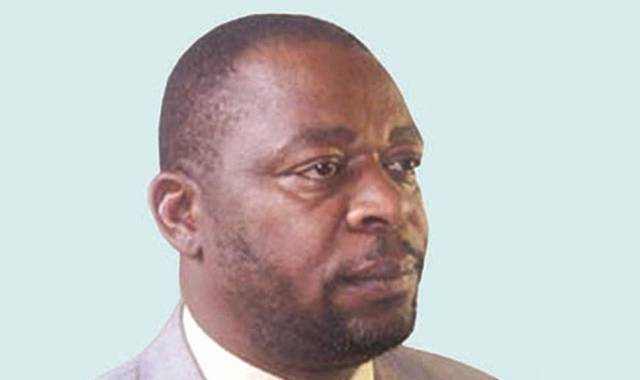Measures to contain Buhera cholera outbreak bear fruit

Zvamaida Murwira
Senior Reporter
The Government has adopted several measures to contain a cholera outbreak that has affected some parts of Buhera district, Manicaland Province.
This comes after the Ministry of Health and Child Care reported that the disease had killed at least 12 people in the district from the 152 recorded cases in the past month.
The cholera outbreak started at a church shrine where a spiritual healing session was being held and the concerned church does not encourage its followers to seek medical attention.
Speaking at a post-Cabinet briefing in Harare yesterday, Information, Publicity and Broadcasting Services Minister, Dr Jenfan Muswere, said Cabinet received a report from Health and Child Care Minister Dr Douglas Mombeshora on the outbreak of cholera in Buhera district with effect from 26 August 2023.
“The Minister of Health also presented a report on preventive measures with respect to reported cases of cholera in Buhera.
Cabinet would like to inform the nation that the Government has instituted a number of measures to contain the reported Buhera incidents such as mobilising equipment for borehole drilling, advocacy and activation of the District Civil Protection Unit. The Nation will be kept abreast of developments on the matter,” said Minister Muswere.
Responding to media inquiries on the extent of the cholera outbreak, Minister Mombeshora said the Government was now on top of the situation in terms of mitigating the effects.
He said the number of new cases were falling, meaning that measures initiated were bearing fruit.
“The outbreak has been going on for about a month, since around the 26th of August 2023. The cumulative figure is that we had 152 cases and unfortunately we also had 12 deaths, that is why we are so worried and we would want to warn the public about the responses.
“Yesterday we had about 22 new cases, the figures are now coming down, there were times we had about 40 or so new cases but now we believe the measures that we have put in place are beginning to bear fruit,” said Minister Mombeshora.
“The most affected area is Murambinda Growth Point and we have identified reasons why we have new cases in Buhera so much more than any other places. Yes, we might have one or two cases that we have picked up in neighbouring Hwedza district but they trace back to Buhera because two patients we picked in Mashonaland East province had attended same funeral in Buhera.”
He said they had since activated health personnel such as village health workers and environmental health technicians to engage communities.
“Let me say cholera is a preventable disease, but if not handled properly can lead to loss of life, so it is diarrhoeal disease. Anyone with diarrhoeal disease must report to health centres for further management.
“We have also realised that the epicentre was a shrine doing spiritual healing and we are now educating people to say you must seek medical attention, we are engaging church leaders to encourage their followers to go to hospitals,” said Minister Mombeshora.
He said they were working with other Government agencies to ensure that gatherings and unauthorised vending were discouraged in and around Murambinda Growth Point.
“We are also consulting with schools to ensure that children are educated not to play around with dirty water. We have also seen that there are vendors, especially unregistered vendors, we are talking to the Ministry of Local Government to ensure that these vendors are removed from the streets of Murambinda.
“We are also educating the people not to use river water. There is also a river that flows through ward seven and we have realised that villagers around that river have contracted the disease more than those that are further away,” Minister Mombeshora said.
In a related matter, Minister Muswere said following reports by the Harare City Council on their failure to provide bulk water to the city, the Ministry of Lands, Agriculture, Fisheries, Water and Rural Development convened a meeting of the National Action Committee on Water Sanitation and Hygiene (WASH).
“The Committee found out that the main challenges affecting the City of Harare are as follows: heavy pollution of Water Supply Dams (Chivero and Manyame) leading to excessive use of water treatment chemicals; aged units constantly breaking down; aged water supply infrastructure leading to reduction in treatment capacity and high water losses; and failure by City of Harare to pay for water treatment chemicals to meet the current treatment capacity of 520 Megalitres per day,” said Minister Muswere.
“The nation is being informed that the Government is fully committed to resolving the Harare water challenges and that of all cities, rural and urban centres. The Government, through the Presidential Rural Development Programme, has drilled 301 boreholes in the past year. Furthermore, a rig has been dedicated to Harare Metropolitan Province and ZINWA will continue the borehole drilling programme, prioritising suburbs which are not receiving water from the City of Harare.”









Comments